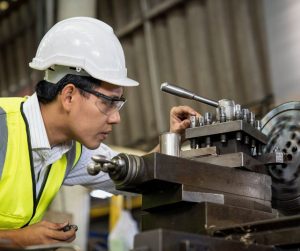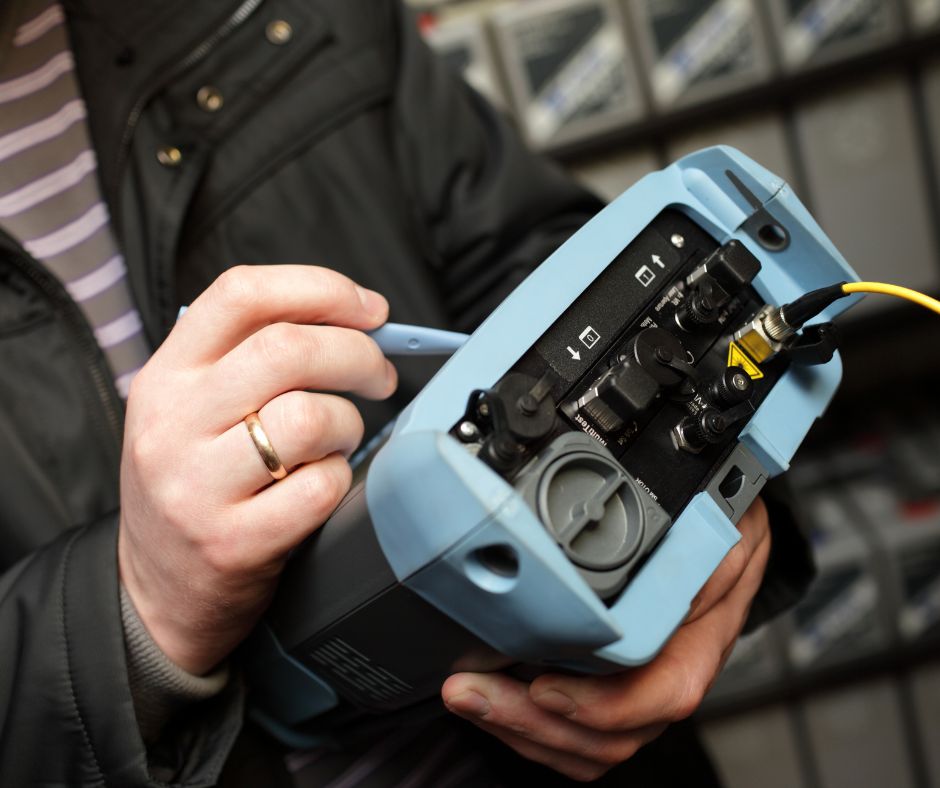Why Calibration is Crucial for the Manufacturing Industry
 For businesses in the manufacturing industry, precision and consistency form the foundation of operational success. Calibration plays a key role in achieving these objectives, ensuring that manufacturing processes are accurate, reliable, and compliant with industry standards. Read on to learn why calibration is crucial for the manufacturing sector and how it impacts everything from product quality to regulatory compliance.
For businesses in the manufacturing industry, precision and consistency form the foundation of operational success. Calibration plays a key role in achieving these objectives, ensuring that manufacturing processes are accurate, reliable, and compliant with industry standards. Read on to learn why calibration is crucial for the manufacturing sector and how it impacts everything from product quality to regulatory compliance.
Ensuring Product Quality
One of the main reasons why calibration is essential in manufacturing is to maintain product quality. Manufacturing processes often involve complex machinery and instruments that must operate within specific tolerances to produce high-quality products. Calibration ensures that these machines and instruments are functioning accurately and consistently, which is critical for:
- Minimizing defects. Accurate calibration reduces the risk of defects and variations in product dimensions, weight, and other critical attributes. This helps in producing uniform products that meet design specifications and quality standards.
- Improving consistency. Regular calibration helps maintain consistency across production runs, ensuring that each product adheres to the same quality standards. Consistent products enhance customer satisfaction and reduce returns and rework.
Enhancing Operational Efficiency
In addition to maintaining product quality, calibration improves operational efficiency in the following ways:
- Reducing downtime. Well-calibrated equipment operates more efficiently and with fewer disruptions. This reduces unplanned downtime and maintenance needs, thereby leading to increased production uptime and smoother operations.
- Optimizing performance. Calibration ensures that equipment performs at its best, improving accuracy and efficiency in manufacturing processes. This can lead to faster production times and reduced waste, which contributes to overall cost savings.
Compliance with Industry Standards
In manufacturing and many other industries, compliance with regulatory standards is mandatory. Regular calibration can help companies meet these requirements by:
- Adhering to specifications. Many regulatory standards, such as ISO 9001, require manufacturers to maintain accurate and calibrated equipment. Calibration helps ensure that manufacturing processes comply with these specifications.
- Meeting audits and inspections. Regular calibration and proper documentation demonstrate adherence to industry standards during audits and inspections. This can prevent costly fines, delays, and disruptions.
Safety and Risk Management
Safety is a critical concern in manufacturing, and calibration contributes to a safer work environment by:
- Preventing equipment failure. Properly calibrated equipment is less likely to fail unexpectedly, thereby reducing the risk of accidents and injuries. Calibration helps identify and address potential issues before they escalate into serious problems.
- Ensuring safe operation. Accurate measurements and calibrations can help ensure that manufacturing equipment operates within safe parameters, protecting both workers and the integrity of the production process.
Supporting Innovation and Growth
As manufacturing technologies continue to evolve, calibration can help support innovation and growth in the following ways:
- Enabling advanced technologies. New technologies and manufacturing techniques often require more precise calibration. Ensuring that equipment is calibrated to meet these advancements supports the integration of new technologies and improves product development.
- Facilitating process improvements. Calibration provides valuable data that can be used to refine and optimize manufacturing processes. This data helps identify areas for improvement and supports continuous improvement initiatives.
Is your manufacturing company in need of calibration services? At Trident Calibration Labs, our experienced team has provided calibration for several major manufacturers across the greater Phoenix area, including Hewlett Packard, National Instruments, and Agilent, and we will work with you to support the unique needs of your business. Contact us today to request an estimate!
continue reading
Related Posts
Why Calibration is Vital for Businesses in the Healthcare Industry […]
Onsite vs. Offsite Calibration: Which is Best for Your Business? […]
Why is Calibration Important for Telecommunications Test Equipment? In the […]



